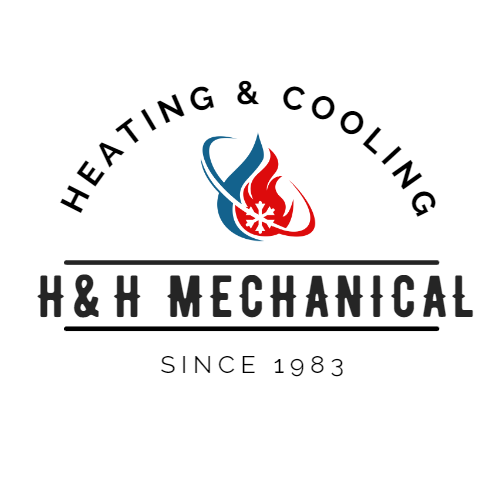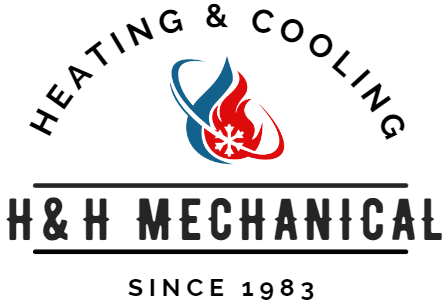Summer Thunderstorms and HVAC: How to Protect Your System
As the temperatures rise during the summer months, so does the likelihood of thunderstorms. While these storms can be awe-inspiring to watch, they also pose a potential risk to your HVAC system. In this blog post, we'll explore the impact of summer thunderstorms on your HVAC system and provide some tips to help you protect it.
Power Surges: One of the primary concerns during thunderstorms is power surges. Lightning strikes can cause sudden voltage spikes that can damage electrical components in your HVAC system. To safeguard against power surges, consider installing a surge protector for your HVAC unit and other sensitive electronic devices in your home.
Flooding: Heavy rainfall during summer thunderstorms can lead to flooding, which can be detrimental to your HVAC system. If your outdoor condensing unit is located in a vulnerable area prone to flooding, it's crucial to elevate the unit or take steps to prevent water from entering it. Additionally, make sure that your indoor unit and ductwork are well-sealed to prevent water infiltration.
Outdoor Debris: Strong winds accompanying thunderstorms can blow debris, such as branches, leaves, and dirt, into your outdoor HVAC unit. This debris can clog the coils, obstruct airflow, and reduce the efficiency of your system. Regularly inspect and clean your unit after a storm to remove any debris that may have accumulated.
Power Outages: Thunderstorms often come with the risk of power outages. Extended power outages can be problematic for your HVAC system, especially if it remains off for a significant period. When the power is restored, there can be a sudden surge that may cause damage to your system. Consider investing in a backup power source, such as a generator or an uninterruptible power supply (UPS), to prevent abrupt power disruptions.
Routine Maintenance: Regular maintenance is essential for the longevity and performance of your HVAC system, especially after a thunderstorm. Schedule a professional HVAC technician to inspect and service your system to ensure that any storm-related damage is addressed promptly. They can clean the coils, check for electrical issues, and ensure that your system is functioning optimally.
Protecting Indoor Air Quality: Thunderstorms can bring high humidity levels and potentially compromised air quality. To maintain a healthy indoor environment, consider using your HVAC system's air purification features, such as a HEPA filter or an activated carbon filter. These filters can help remove allergens, dust, and other contaminants from the air.
Summer thunderstorms can pose risks to your HVAC system, but with proper precautions, you can protect it from potential damage. Implementing surge protection, preventing flooding, cleaning debris, ensuring backup power, and scheduling routine maintenance are all key steps in safeguarding your system. By taking these measures, you can keep your HVAC system running smoothly throughout the stormy summer season.

You might also like

By Loren Crabtree
•
April 8, 2025
Top 5 Energy-Zapping Habits in the Summer The shift to warmer weather can come with a noticeable increase in our energy bills. As temperatures rise, so does the tendency to engage in habits that, while providing short-term relief, significantly contribute to energy wastage. Identifying and adjusting these energy-zapping habits can lead to not only a more environmentally friendly lifestyle but also substantial savings. Here are the top five habits to be aware of and adjust this summer. 1. Overusing Air Conditioning While air conditioning is a modern luxury that can make the hot summer months bearable, excessive use is among the top energy-zapping habits. Setting the thermostat too low or leaving the AC on when no one is home contributes to unnecessary energy consumption. Tip: Consider installing a programmable thermostat or a smart home system that allows you to schedule cooling times and adjust settings remotely. Setting your thermostat to a higher temperature when you’re not home can lead to significant savings. 2. Ignoring HVAC Maintenance A well-maintained HVAC system operates more efficiently and uses less energy. Neglecting routine maintenance such as replacing filters or ignoring signs that the system may not be working efficiently can lead to higher energy consumption. Tip: Schedule regular maintenance checks and clean or replace the air filter every 90 days or as recommended by the manufacturer to keep your system running smoothly. 3. Frequent Opening of Refrigerator Doors It might seem trivial, but the habit of opening the refrigerator frequently can cause a significant increase in energy usage. Each opening allows cool air to escape, forcing the fridge to work harder to maintain its internal temperature. Tip: Try to limit the number of times you open the fridge door by planning what you need ahead. Keeping the fridge and freezer well-organized can also help minimize the time the door stays open. 4. Overdoing the Use of Heat-Producing Appliances Summer is not the best time to frequently use ovens, stovetops, or other appliances that produce a lot of heat. These not only contribute to the ambient temperature of your home (making your AC work harder) but also use a lot of energy. Tip: Opt for meals that require minimal cooking, use a microwave or slow cooker, or consider grilling outdoors. 5. Poor Insulation and Air Leaks Poor insulation and air leaks around doors and windows allow cool air to escape, which can significantly increase the workload on your air conditioning unit. This, in turn, increases energy consumption. Tip: Invest in quality insulation, and use weather-stripping around doors and windows to seal leaks. These improvements can provide long-term savings and a more comfortable living environment. Summertime should be a season of enjoyment, not high energy bills. By being mindful of these top energy-zapping habits and making a few adjustments, you can enjoy a cool, comfortable home without breaking the bank. Start implementing these tips today for a more energy-efficient summer.

By Loren Crabtree
•
March 25, 2025
Why You Might Not Change the Ductwork When Replacing Your HVAC System When it comes time to replace your HVAC system, a question that frequently arises is whether the existing ductwork also needs to be replaced. Surprisingly, the answer isn't always a resounding yes. While it might seem logical to overhaul everything at once for efficiency's sake, several compelling reasons might sway your decision to retain the existing ductwork. Here's why: 1. Condition of Existing Ductwork The primary consideration is the condition of your current ductwork. If it's in good shape, free from leaks, and not showing signs of significant wear like corrosion or damage, it can often remain in place. Quality ductwork can last decades if properly installed and maintained, meaning it might outlast an HVAC unit itself. 2. Cost Efficiency Replacing ductwork is an extensive and sometimes invasive process that can significantly add to the overall cost of HVAC system replacement. If the current ductwork is still functional and efficient, keeping it can save you a substantial amount of money and time. It's all about balancing the cost versus benefits, and if the ductwork isn't contributing to energy loss or performance issues, the expenditure might not be justified. 3. Compatibility and Sizing In many cases, the existing ductwork is perfectly compatible with the new HVAC unit. Proper sizing is critical for the efficiency of the HVAC system — if the ducts were correctly sized for the old unit, and the new unit is of a similar size and capacity, there's often no need for adjustment. However, significant changes in the size or type of HVAC system could warrant a reassessment and potential replacement of the ductwork. 4. Minimal Performance Gains The performance boost from replacing ductwork might not be as significant as expected, particularly if your existing ducts are in good condition. The efficiency and functionality of your HVAC system depend largely on the unit itself, proper installation, and regular maintenance. While new ductwork can offer improvements, especially if the old system had issues, the marginal gains might not always justify the cost for systems already operating efficiently. 5. Environmental Considerations Retaining existing ductwork can also be a more environmentally friendly option. By not replacing the ducts, you're reducing waste and the demand for new materials. This approach aligns with the principles of reducing, reusing, and recycling, contributing to a lower environmental impact. Final Thoughts Deciding not to replace the ductwork during an HVAC system upgrade isn't about cutting corners; it's about making an informed choice based on the condition, compatibility, and the potential cost and environmental impact. However, it's crucial to have your current system evaluated by a professional to ensure that keeping the existing ductwork is the best decision for your home's comfort and efficiency. Regular inspections and maintenance will keep your HVAC system, and its ductwork running smoothly for years to come, ensuring that when the time for replacement comes, you'll be ready to make the best choice for your home.
Book a Service Today
Thank you for contacting us.
We will get back to you as soon as possible
We will get back to you as soon as possible
Oops, there was an error sending your message.
Please try again later
Please try again later



